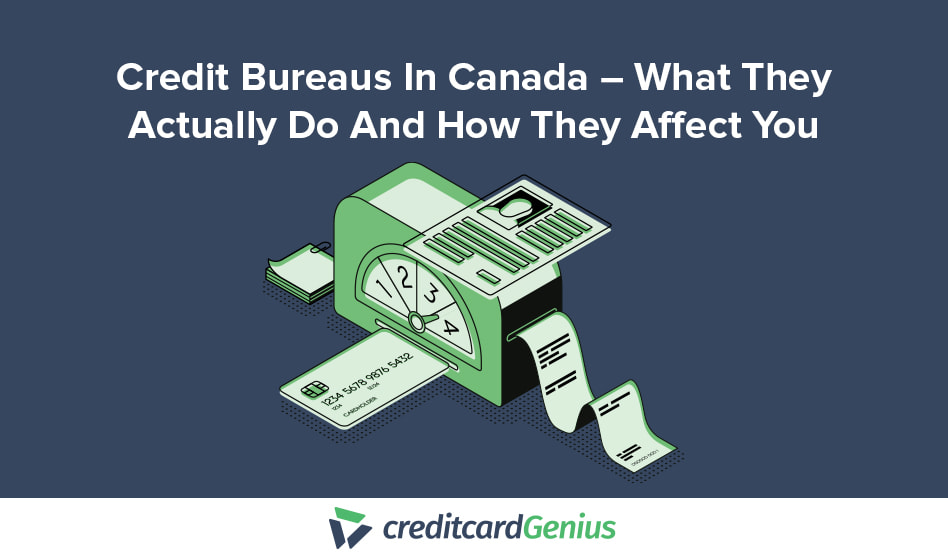Both TransUnion and Equifax are credit bureaus from which you can obtain your credit score. They use different algorithms and have different reporting dates, which can lead to differences in your credit score depending on which bureau you check with.
Here, we’re diving into the similarities, differences, and how you can check your credit score for free.
Never miss an amazing deal again + get our bonus 250+ page eBook for FREE. Join 50,000 other Canadians who receive our weekly newsletter – learn more.
Transunion vs. Equifax
Before we jump into the differences between TransUnion and Equifax, remember that there are some big similarities. Both companies are private credit bureaus that monitor and report how Canadians handle credit.
- Equifax is an American company but it has Canadian headquarters in Toronto. As of 2024, the company operates in over 25 countries around the world.
- TransUnion is based in Burlington, ON, although its roots go back to a railway equipment company started in Chicago in the 1960s. These days, TransUnion provides the same type of private financial monitoring and reporting services as Equifax.
Why are Transunion and Equifax credit scores different?
Check your credit score with both bureaus and you’ll very likely get different results. Here’s why.
They use different algorithms
Any site that compares numbers and does a bunch of data-crunching will probably have its own proprietary algorithms, and this is true of TransUnion and Equifax. They differ in some major areas:
- Credit history length. Equifax calculates credit score based on 81 months while TransUnion uses a 84-month credit history.
- Scoring models. While Equifax relies on the FICO model, TransUnion uses the VantageScore model. This impacts factor weighting and can mean that, for example, credit utilization may be more of a factor for one bureau than the other.
They have access to different information
The credit bureaus may also have access to different information since lenders don’t always report to both bureaus.
For example, let’s say that you applied for an RBC credit card and RBC wants to conduct a hard credit check. This may bring your credit score down a little – but RBC only checks with TransUnion, so your Equifax score might not show the dip due to the credit check.
On the other side, we have KOHO Credit Building, a subscription service that can help increase your credit score as you make regular, on-time payments to your account. KOHO reports your payments to Equifax.
KOHO Credit Building
They have different reporting dates
While many aspects of banking are digital and instant, your credit score isn’t. Equifax updates your score at least monthly, while TransUnion updates scores usually monthly but at least every 45 days.
This difference means you’ll very likely see different scores between the two (even if all other weighting was exactly the same!).
They make mistakes
Mistakes happen, even by credit bureaus. This is why it’s important to check your full credit report regularly – at least annually.
If you find an inaccuracy in your credit report, you may need to speak to your bank or credit issuer to solve the problem. Hopefully, it’s a quick fix.
If necessary, you can initiate a dispute by providing documentation needed to correct the issue. Both TransUnion and Equifax disputes can be started online, but you can also opt for snail mail or a phone call.
A real-life example: One of our editors checked her credit score and noticed that it had dropped by about 200 points. When she looked further into the report, she realized that an account that she paid and closed was showing up as written off. She initiated a dispute, provided documentation of the account being fully paid and closed, and her credit score recovered fairly quickly.
Is TransUnion or Equifax more accurate?
Since both credit bureaus use different algorithms and emphasize different factors, one bureau isn’t necessarily more accurate or better than the other. They are simply different.
That said, it’s important to check both credit reports to ensure the accuracy of your information.
How to check your credit score
If you want to check your credit score, you can contact one of the credit bureaus and request a report. You're allowed 1 free credit report every year.
myEquifax Canada
You can use myEquifax to get your credit report for free once per year. Submit a request online, over the phone, by mail, or in person. Choosing the online option gets you instant access to your report.
Equifax also provides credit monitoring through Equifax Complete Premier, but that costs $24.95 per month (with a reduced rate your first month).
TransUnion
Similar to Equifax, you can request your free credit report from TransUnion annually – online, by phone, by mail, or in person. If you're interested in credit monitoring, you’ll pay a monthly fee of $24.95 for the service.
Borrowell
Borrowell is one of the best-known tools for getting a free credit score. It's a Toronto-based company that also offers financial products like personal loans, mortgage products, and insurance. Note that Borrowell gets its credit reports from Equifax.
Credit Karma
Credit Karma is another option and it offers credit scores updated weekly – plus financial education. Credit Karma gets its credit reports from TransUnion.
Your bank
All of the Big 5 banks allow you to check your credit score for free using their apps. You’ll need to log into your online banking account or mobile app and select your bank’s variation of “View credit score” from the menu or dashboard.
What factors impact your credit score?
Although bureaus weigh factors differently, they typically look at a mix of the same factors. Here’s what they’re checking:
- Payment history
- Amounts owed
- Length of credit history
- Credit mix
- New credit
Credit bureaus are not allowed to use personal information like age, race, gender, religion, marital status, employment, and location when determining your credit score.
FAQ
Is TransUnion more accurate than Equifax?
One credit bureau isn’t necessarily more accurate than the other since reporting dates can vary. Both companies generally look at the same information so your scores probably won’t vary by a lot—if they do, check your report for any errors and dispute them.
Do lenders look at TransUnion or Equifax?
Lenders typically look at just one credit bureau. Some lenders disclose which bureau they use, so check their websites if you’re actively trying to get a loan.
What is a good credit score in Canada?
A good credit score generally means a score between 660 and 724—you’ll have better credit approval odds the higher your score.
creditcardGenius is the only tool that compares 126+ features of 228 Canadian credit cards using math-based ratings and rankings that respond to your needs, instantly. Take our quiz and see which of Canada's 228 cards is for you.











































Comments
Leave a comment
Required fields are marked with *. Your email address will not be published.
Showing 4 comments